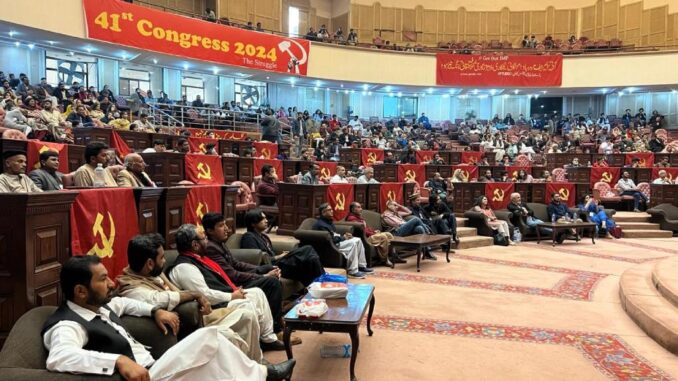
On 2 and 3 March, 2024, the 41st Congress of The Struggle, the ISL section in Pakistan, took place in Lahore. More than 1300 comrades participated, with a high participation of young people and women, many of them new members and sympathizers who are approaching the organization. They debated the main aspects of the global and national situation, Lenin’s legacy 100 years after his death, the challenges and perspectives of the organization and party building, and a series of tasks to take advantage of the opportunities that the class struggle offers in the country and the region. In this regard, three very detailed documents on perspectives and party building were published prior to the Congress and circulated and discussed throughout the organization. These documents were then voted on in the Congress. Additionally, three commissions on youth, trade union and women work were held during the two days of the meeting. The congress received dozens of messages of solidarity from the sister organizations hailing from all the five continents. Coordinator of International Socialist League (ISL) travelled all the way from Argentina to participate in the congress and open the first session on the international situation.
Day 1
In the morning of Saturday (March 2) comrades from every corner of the country arrived at the Aiwan-e-Iqbal Complex, a feat that implied an extraordinary effort in the current economic context of high inflation and poverty. Delegations from Jammu Kashmir, North Punjab, KPK, Balochistan, Multan, Faisalabad and the rest of Punjab, Dadu, Hyderabad, Karachi and almost every other region of the country filled the hall.
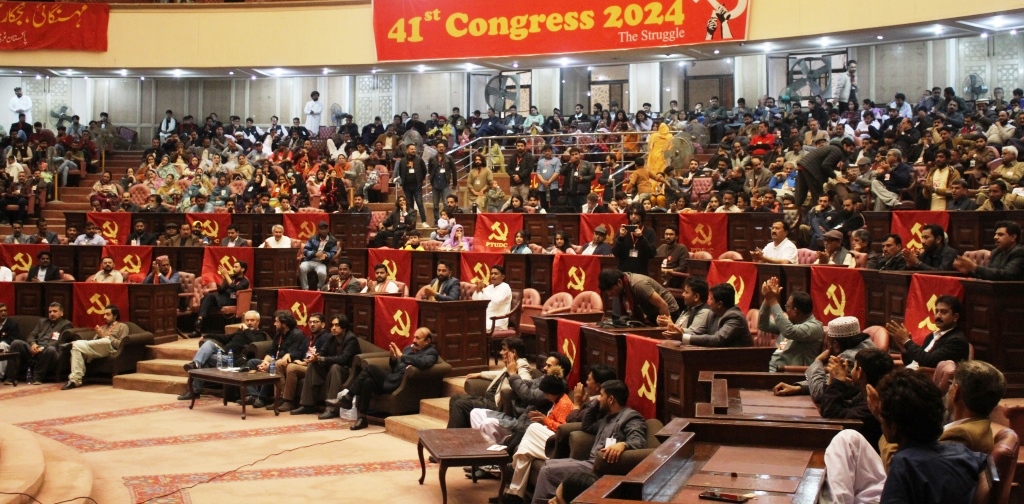
The day began with revolutionary anthems and poems. Comrade Gufran Ahad opened the Congress with a few but very enthusiastic words of welcome. Comrade Imran Kamyana then presented the international delegates and the first series of international greetings were projected before the first session on the world perspectives began.
The session was chaired by comrade Nazar Mengal. Alejandro Bodart, coordinator of the ISL, delivered a lead off that covered an analysis of the capitalist crisis, global social and political polarization, inter-imperialist conflicts and some of the main current debates of the world left, such as Ukraine and Palestine. Comrades Zahid from the USA, Rahul from Hyderabad, Haris Qadeer from Kashmir, Rehana from Rawalpindi made contributions and the debate was enriched with various questions presented by the comrades. Comrade Alejandro then closed the session addressing the questions that several comrades asked in the context of inter-imperialist conflicts, the Ukrainian war and our proposals for Palestine, among other topics.
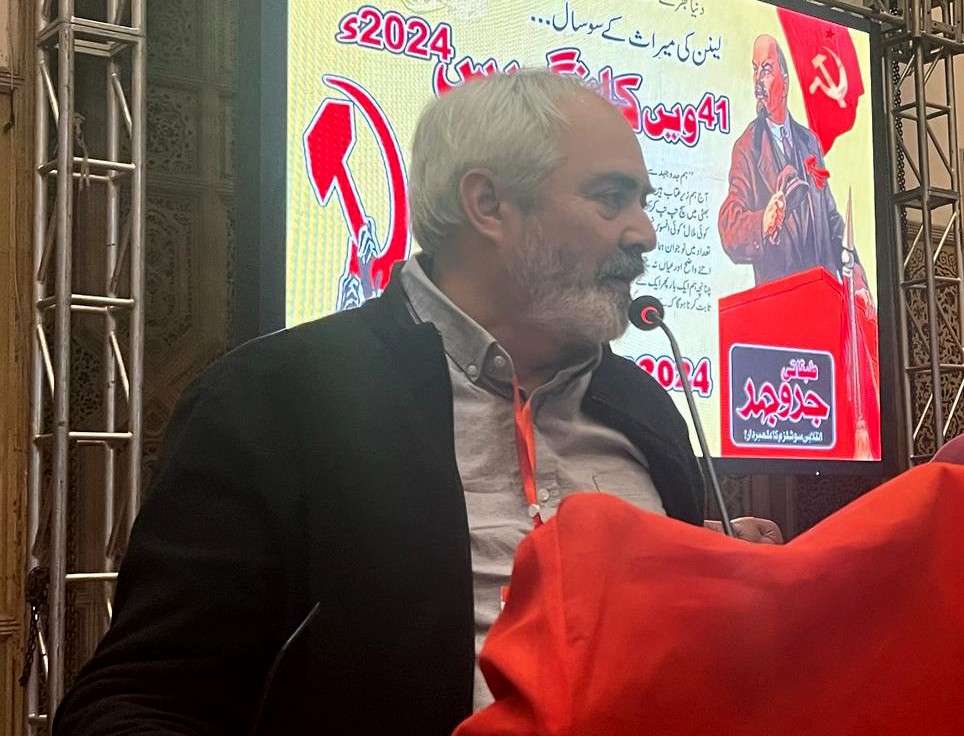
After lunch, the second session on Pakistan perspective began, chaired by comrade Rashid Shiekh. Comrade Zafar Ullah delivered the lead off on the country’s political situation, marked by the economic crisis, division and instability in the regime and significant mass movements in Kashmir and Balochistan. Comrades Ilyas Khan from Lahore, Anwan Panwar from Dadu and S.N. Shorida from Kashmir made contributions, and comrade Zaffar while summing up the discussion answered the questions presented by various comrades.
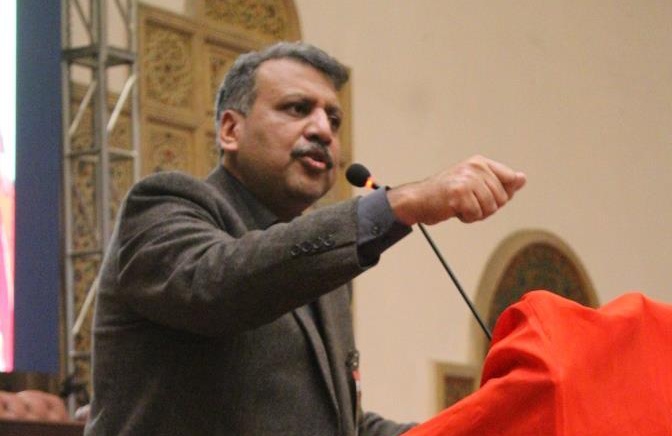
The day ended with meetings of the youth, PTUDC (the trade union front of the organization) and women’s commissions, the latter with the participation of dozens of new comrades who have joined The Struggle in the heat of the movements in Kashmir and Baluchistan.
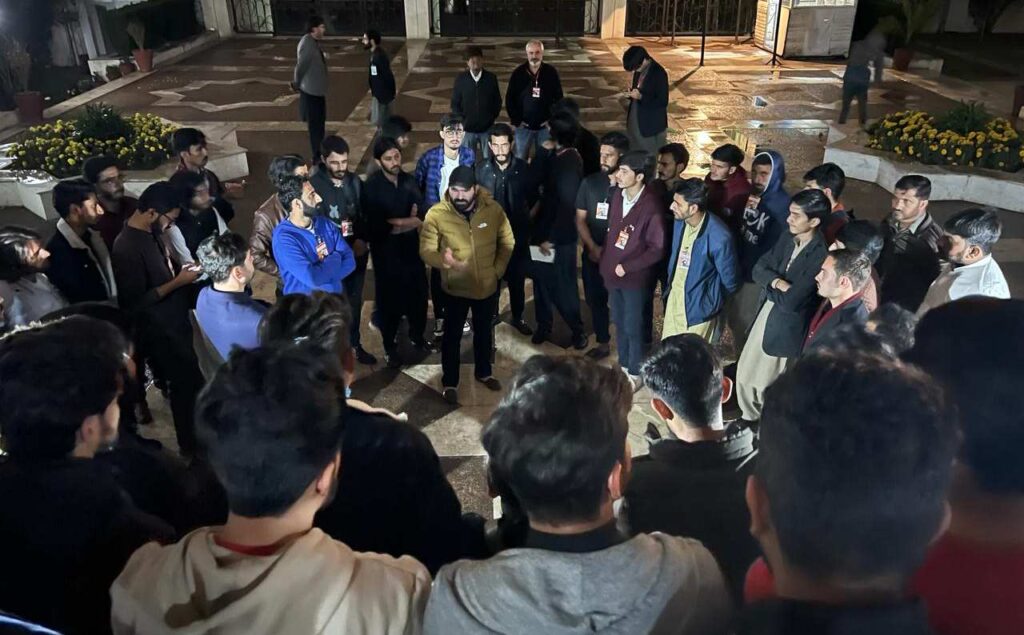
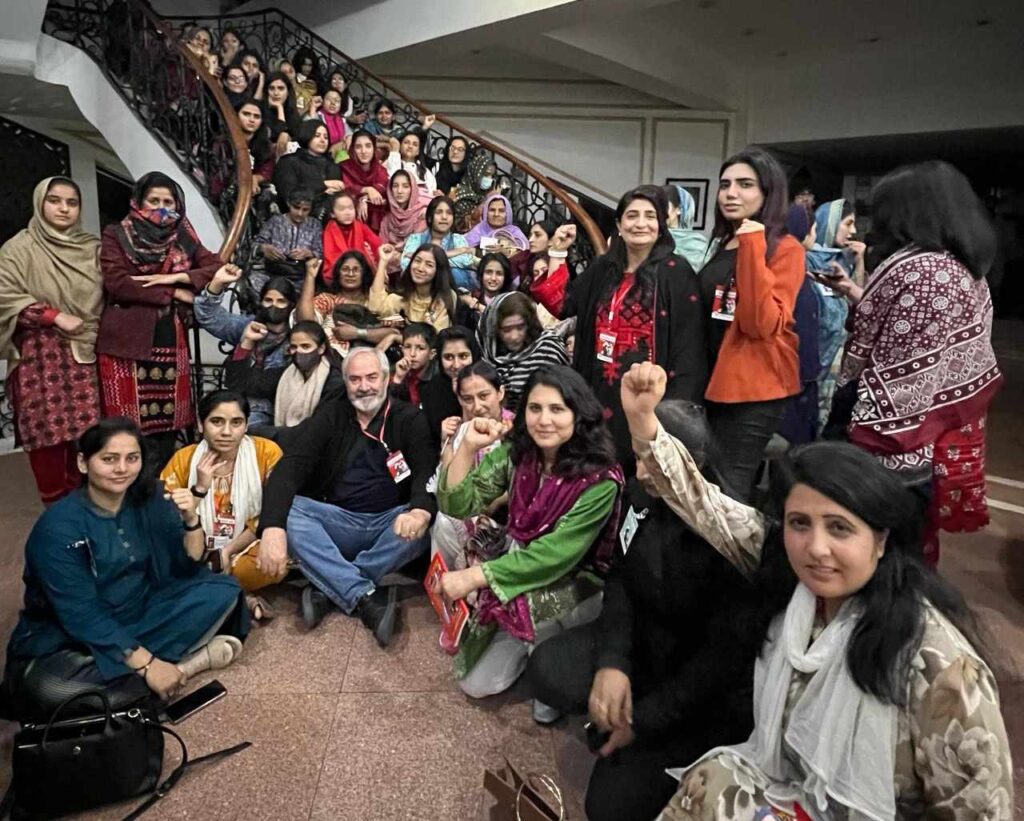
Day 2
In the morning of Sunday (March 3), the second day of the meeting began with revolutionary songs and poems and the projection of another series of international greetings. The third session on Lenin 100 years after his death then began. It was chaired by comrade Rahul. Comrade Imran Kamyana led off with a report on the main contributions of the great Russian revolutionary to the Marxist theory and practices and their relevance today. On the one hand, he highlighted Lenin’s theoretical contributions on the state, imperialism and national problems that have particular relevance today. On the other hand, he explained Lenin’s revolutionary party model, with professional militants and democratic centralism. Comrade Alejandro Bodart from the ISL, Altamash from Kashmir and Asif Rasheed from Islamabad made contributions and comrade Imran Kamyana closed the session answering the questions.

Afterwards, the fourth session on the building of revolutionary party and international began, chaired by Qamar Uz Zaman. Comrade Awais Qarni led off with the report on organization, presenting an assessment of recent activity of the organization, which has been intervening in the main processes of the class struggle and national movements, particularly in Jammu Kashmir and Balochistan, and is growing considerably, especially in the vanguard of these movements, organizing many young activists including women.
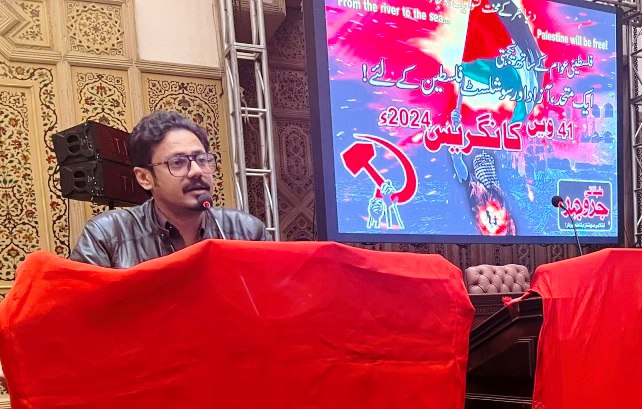
Afterward, comrade Rauf Lond presented the central committee proposal, comrade Khakula presented the women’s commission report, comrade Omer Abdullah presented the youth commission report, comrade Qamar Uz Zaman presented the PTUDC commission report and comrade Khalil Babar presented a general organizational report of the JKNSF (the revolutionary youth organization in Kashmir).
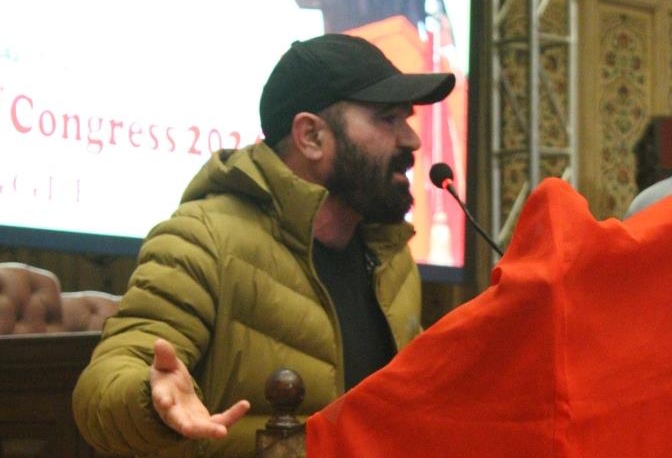
Delegates then voted the proposed central committee, the document prepared by the ISL leadership and the contributions in the debate on world perspectives, the document and the discussion on the Pakistan perspective and tasks presented by the party leadership, the debate on the legacy and relevance of Lenin after 100 years, the document and report on the organization, and the reports of the commissions.
The Congress closed with the singing of the The Internationale and marching out of the hall to carry out a great mobilization for a “secular, socialist and united Palestine from the river to the sea.”
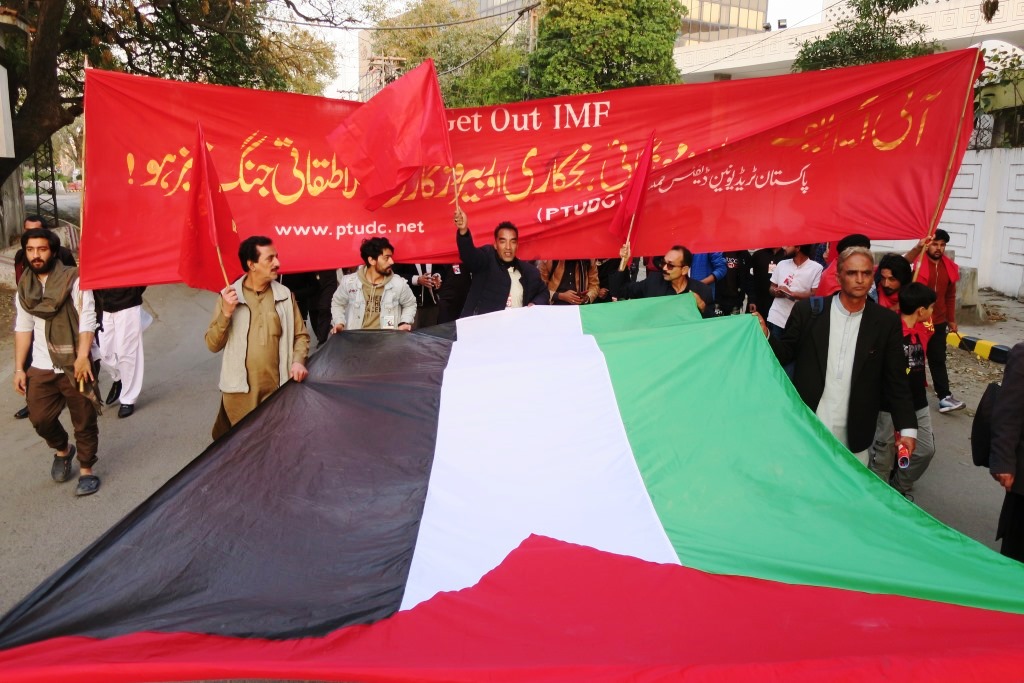
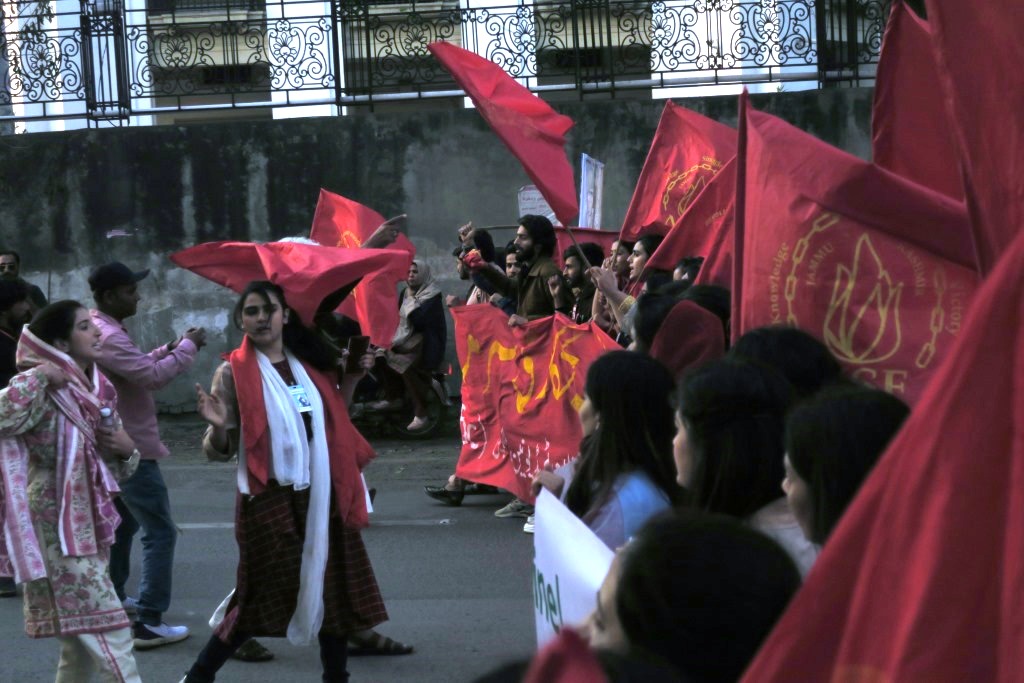
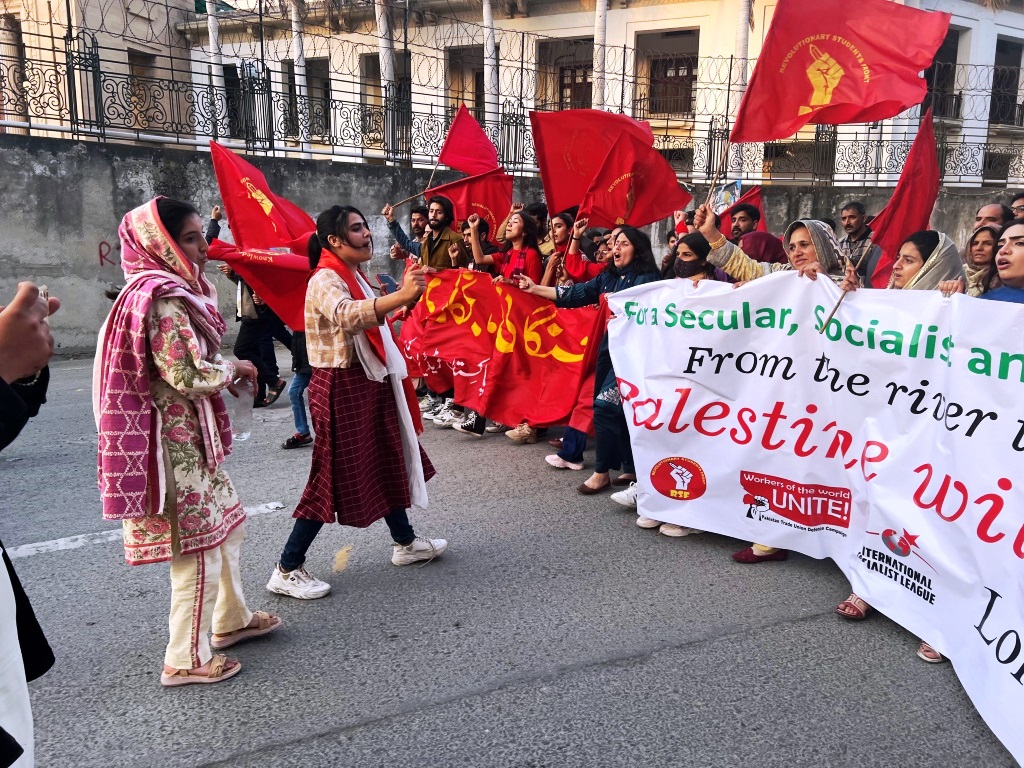
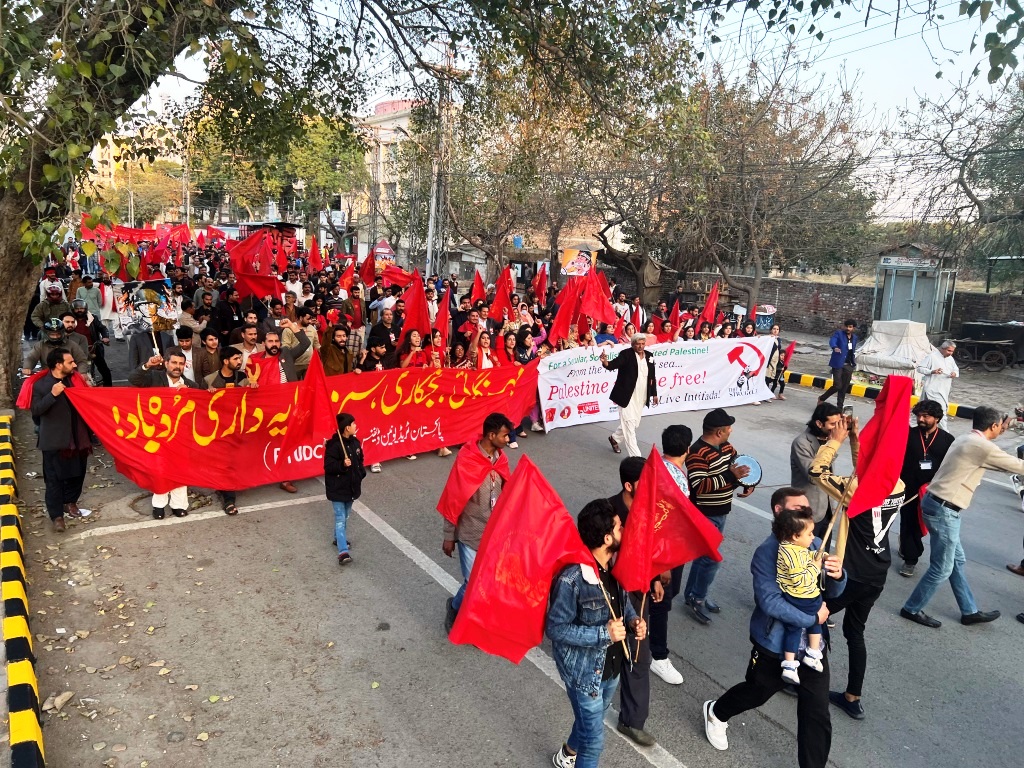

Main conclusions
1. The 41st Congress has finished consolidating the leadership that has steered the party since the death of its founder, comrade Lal Khan. The physical disappearance of the organization’s undisputed leader opened a period of internal debates that ended with the departure of a small group that behaved in a very disloyal, petty bourgeois and uncomradely manner against the comrades who took on the responsibility of leading the party. The success of the Congress definitely represents a new stage and opens a new avenue, full of opportunities for growth and development.
2. More than 1300 participants, including delegates and guests, surpassed the most optimistic expectations, managing to exceed the number of comrades of the most recent congresses, showing significant growth and consolidation. The enthusiasm and conviction to carry out the party’s tasks with which the delegations returned to their regions is the most complete expression of the successful result of the Congress.
3. The large number of women and young people among the Congress participants stood out, demonstrating a highly dynamic organization. The presence of a significant number of women, much superior to other events, in a country where the patriarchy is so deeply rooted in society is an achievement of great magnitude that must be highly valued, as well as the fact that the great majority of delegations had a youth component.
4. Among the delegations, another very important element to highlight is the party’s advances in the places where the national movements and class struggles are developing the most, as in Jammu Kashmir and Balochistan, where the party’s intervention stands out and is playing leading roles in many instances.
5. The high political level of the lead offs and contributions corroborates that the party has a significant layer of cadres and militants, theoretically and politically educated in the ideas of revolutionary Marxism. This represents an invaluable capital to face the challenges that lay ahead and take new leaps in the construction of the organization in the next period.
6. The meeting achieved, in the midst of a critical economic situation that affects most comrades, complete self-financing and guarantee of the important logistics that such a huge event demanded, which is another very important step forward for a working class and revolutionary organization based in the impoverished working people.
7. Last but not the least, the Congress shows the organization’s high internationalist commitment, unconditional militancy and association with the Palestinian cause, solidarity with all the struggles of workers and oppressed peoples of the world, and its full commitment and integration to the construction of the International Socialist League.
Without a doubt, the advances of The Struggle are a source of pride for the entire membership of our international and strengthen us to continue fighting to overthrow this rotten capitalist system and pave the way for a more just, free and solidarity based society, a socialist society where the only ones who can reverse barbarity and can guarantee the happiness of common people rule: democratically organized workers.
ISL Coordination
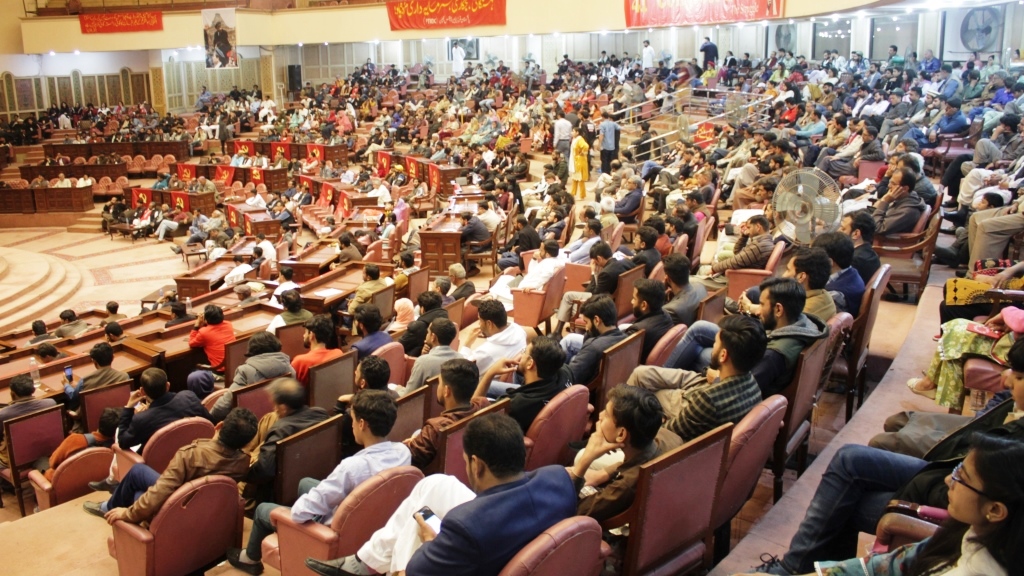
Photo Gallery of the Congress on the Facebook page of The Struggle








